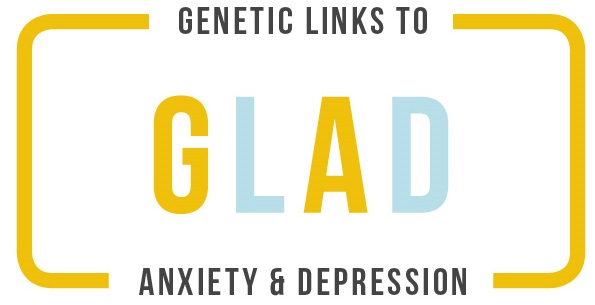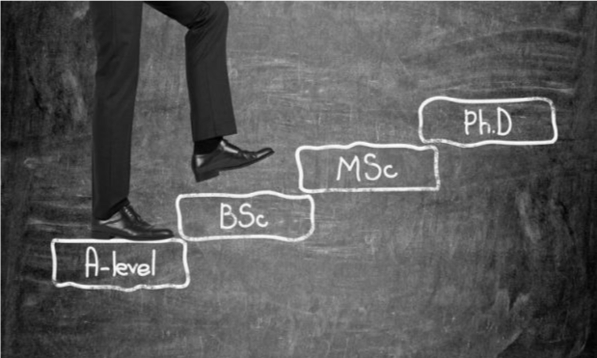Liv and Elizabeth are two of our undergraduate psychology students who have taken a break from studying to undertake a placement year in the EDITlab. Their work spans the Genetic Links to Anxiety and Depression Study (GLAD), the Eating Disorders Genetics Initiative project (EDGI), and COPING, a project recently launched in collaboration with the Repeated Assessment of Mental Health in Pandemic (RAMP) Study. In this blog, they discuss their experiences of being a placement student at the SGDP Centre and what they have learnt.
About us
Liv: My interests lie in the etiology and treatment of psychological conditions, particularly eating disorders. In the future I hope to take the DClinPsy and become a clinical psychologist.
Elizabeth: My interests are more focused on depression, anxiety and their underlying cultural differences that caused the misconceptions.
What does being a placement student at the SGDP involve?
Liv: It’s difficult to describe a typical day as what we do can vary greatly. We work on multiple studies so the focus of the team can shift from one place to another often. I work as part of a larger team which consists of other students, research assistants, senior researchers, lab staff, and professors. We have regular contact with our participants through emails, phone calls, and social media. We also create the content for the studies’ social media, including the images and infographics. In addition to recurring responsibilities, we are able to explore other opportunities, such as being interviewed in a podcast, creating questionnaires for practitioner use, or helping to organise the launch event for a new study.
“We get involved in more than I had expected”
Elizabeth: As a placement student, we get involved in more than I had expected. In addition to Liv’s response, we are quite often asked to design the email reminders and newsletters to keep our participants updated. Moreover, our projects have close collaboration with the NHS, which gives us a chance to get involved in helping to organise recruitment from the sites and liaise with clinicians. This experience has given me an overview of the NHS structure and its relationship with the clinical research network, which is a good beginning for understanding the clinical aspect of research. There are also weekly seminars and workshops organised by SGDP that we can attend. These seminars are often about the cutting-edge research on mental health using both molecular genetics and twin studies, and are given by leading academics.
What will you take away from this experience?
Liv: Personally, one of the main points I’ll take from my placement will be how much my understanding of the research process has increased. By being immersed in the research environment, I’ve learned a huge amount about what goes on behind the scenes and have a greater appreciation for the time and effort involved in publishing a paper. Now I can put this into perspective, it makes working in the same building as some of the greatest pioneering academics in psychiatry even more of a privilege.
Elizabeth: The most valuable insight that I will take away with me is the understanding of how different collaborations play a role in projects like GLAD and EDGI. Simply speaking, we are working on research projects, however, so much goes on behind the scenes. This includes our collaboration with the NHS, social media companies, influencers, and charities that support us. Getting first hand experience has helped me to understand how these collaborations work, how to communicate with and approach different partnerships. I believe this is not only helpful for large scale research, but the skills that I’ve learnt can also be transferred to many other fields.
Unexpected things?
Liv: I was concerned that the change of routine and work-style may put me at a disadvantage in my final year compared to those who continued directly following their second year of university. However, reflecting on that decision now I think that the structured schedule, and the way that we’ve had to practice prioritising our own tasks, has put me in good stead for my last year. I didn’t expect to grow in confidence as much as I have, or that my opinions and suggestions would be given the value that they are. Those I’ve worked with at the SGDP have treated me with as much respect as they would any other colleague, and they’ve encouraged me to make as much personal and professional development as possible. Most of all (and it’s a bit cliched but it’s true), I didn’t expect to make such great friends with the other students and staff.
“I didn’t expect to grow in confidence as much as I have”
Elizabeth: I was given many more responsibilities than I expected, which helped to improve my skills in numerous ways. Everything I learnt since the beginning of the placement has exceeded my expectations and I do appreciate it.
Final thoughts
Liv: Overall, I can say for sure that my placement year has been a positive and fulfilling experience. I feel prepared for future study, and for the transition from study to workplace- whether that may be in a research or clinical setting. I would definitely recommend it to other undergraduate students, and I really believe that I have developed as a psychologist.
Elizabeth: Generally speaking, I feel that I have learnt so much in a year and am lucky to know more people from the field. I was also touched by everyone’s passion with mental health and how the team is trying to work on the same target. To me, it’s a very valuable experience of teamwork and I enjoyed it a lot.



